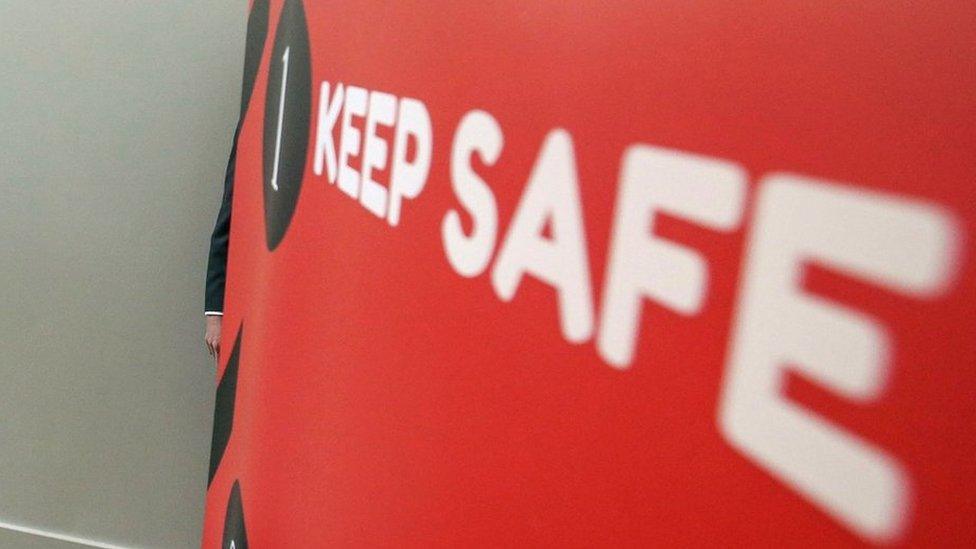Can my child's school insist they take a Covid test?
- Published
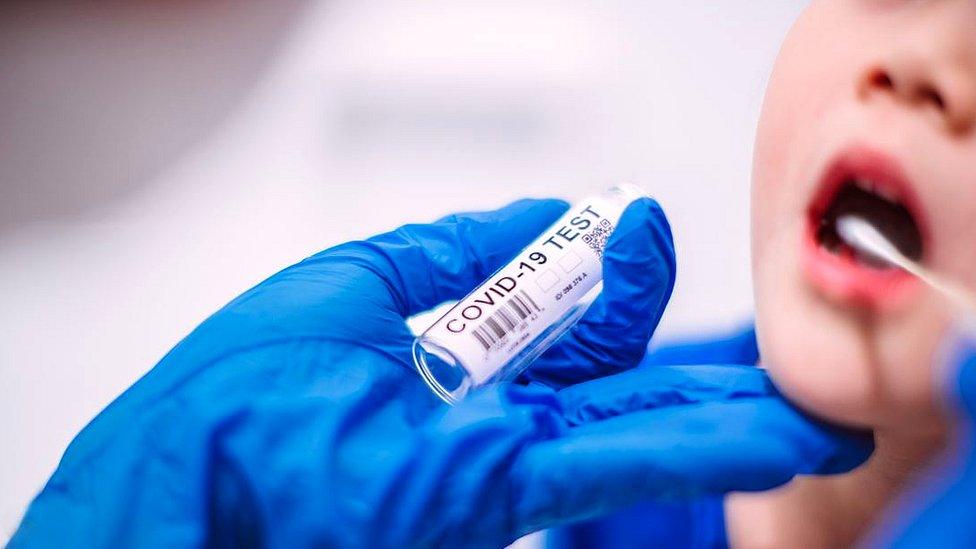
In just the second week of pupils returning to school in Scotland, almost 17,500 children were tested for coronavirus.
Only 49 turned out to be positive.
Demand for tests of children aged from two to 17 shot up by 300% in a week, but only two more had the virus than the previous week.
One theory is that the usual back-to-school bugs and colds have kicked in with a vengeance after five months away from the classroom and other children.
Clinical Director Jason Leitch has written to parents to reassure them and give simple guidance on when a test is required and when it isn't.
But when should you worry? When should you keep children home from school and what role do schools play in the demand for testing? We consulted the latest Scottish government guidance.
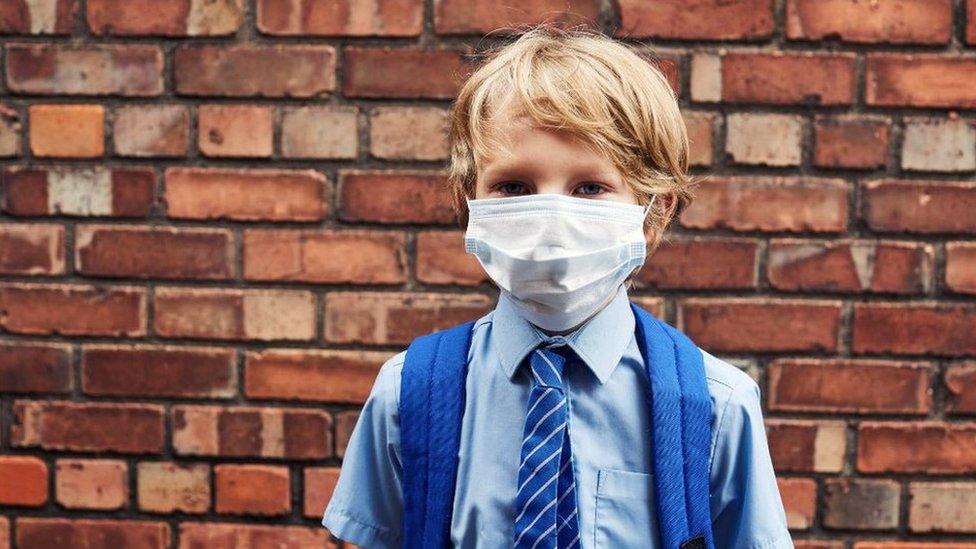
My child has cold symptoms - do I send them to school or not?
This is all down to what the symptoms are.
If your child has any of the coronavirus symptoms which indicate that they need a test then they, and everyone else in the household, including siblings, should isolate straight away.
You should book a test for the child with symptoms via www.nhsinform.scot, external or, if you can't get online, by calling 0800 028 2816.
A runny nose, blocked nose or a sore throat are currently not recognised symptoms that would require a test.
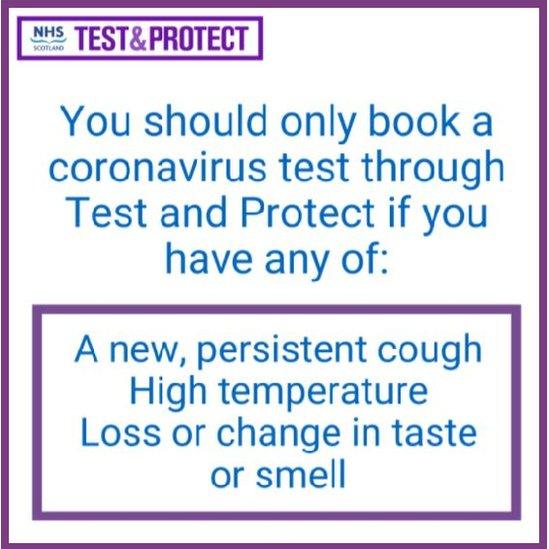
The symptoms which trigger the need for a test are different to regular cold symptoms

When should I book a test?
Book a test if you or your child has:
a new, continuous cough (coughing for more than an hour, or three or more coughing episodes in 24 hours)
fever/high temperature (37.8C or greater)
loss of, or change in, sense of smell or taste
You should also book a test if you have been instructed to by Test and Protect as a contact of someone who has tested positive.
Can my child be sent home from school with a cold and ordered to have a test before returning?
All schools are on the lookout for potential outbreaks.
Children will be sent home from school if they are showing symptoms of coronavirus.
This means you should book a test immediately. Your family must also follow self-isolation guidelines.
All schools have plans in place if there is an outbreak. In an outbreak Public Health Scotland will co-ordinate activity with Test and Protect.
If your child is feeling unwell with different symptoms, you should treat those as you normally would.
Allow X content?
This article contains content provided by X. We ask for your permission before anything is loaded, as they may be using cookies and other technologies. You may want to read X’s cookie policy, external and privacy policy, external before accepting. To view this content choose ‘accept and continue’.

Can a school insist my child is tested for coronavirus?
Someone should be tested for coronavirus if they are symptomatic or if they have been instructed to by a contact tracer. If someone develops symptoms while in school they will be asked to return home and arrange a test.
If your child has a cold or another illness with different symptoms, those should be treated as normal and seek medical assistance if necessary.
But a test should only be arranged if one of the recognised Covid-19 symptoms is present or a contact tracer asks you to.
A school cannot insist on seeing evidence of a negative test.
What do we do after a test? And if my child is asked to self-isolate, does the rest of the family have to?
Everyone in the household should continue to isolate until the test results come through.
If the test result for your child is negative, and your child is not already isolating as a "close contact" of a confirmed case, they can end isolation and return to school when they are well enough and have not had a fever for 48 hours.
The rest of their household can end isolation straight away.
If the test is positive, the symptomatic child should remain in isolation until 10 days from symptoms starting, or longer if they still have a fever.
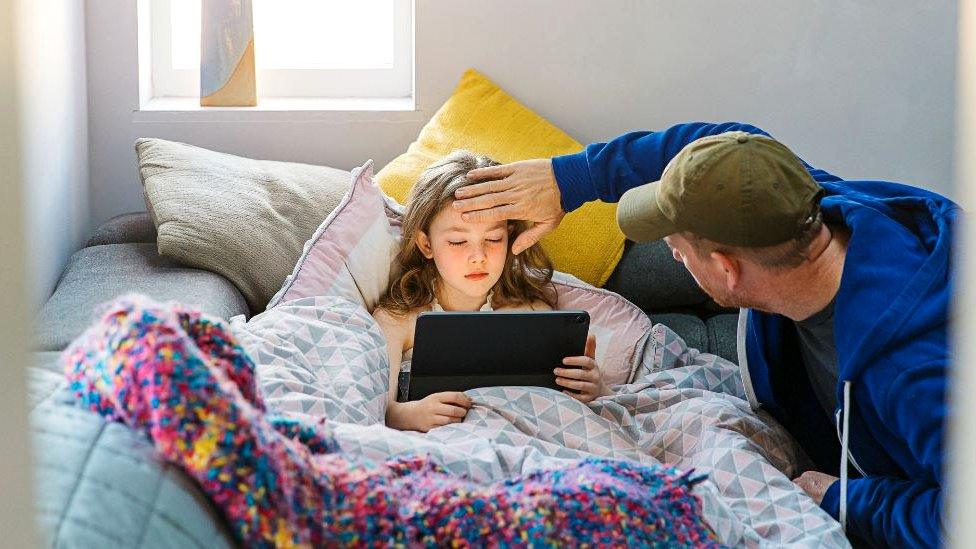
The rest of the household should remain in isolation for 14 days from when the person who tested positive showed symptoms, even if they don't have symptoms themselves.
You will also be put in touch with the local contact tracing team so that other close contacts of your child can be identified. These close contacts will also be asked to self-isolate for 14 days.
The Test and Protect process is confidential, and your close contacts will not be told that it was you that they were in contact with unless you give permission.
Should the whole family be tested?
Only family members who have symptoms should be tested.
If you do not have symptoms yourself and are self-isolating as a close contact of someone with coronavirus, other people in your own household and extended household (if you have one) will not be asked to isolate along with you - unless they have also been in close contact with a person who is a confirmed case, in which case they will be informed by the NHS.
If, however, your child does not have symptoms of Covid-19 but has other cold-like symptoms, such as a runny nose, they do not need to be tested and they and you do not need to self-isolate. Your child can go to school if fit to do so.
Letter to parents
Prof Leitch has written a letter to parents with some guidance on what to do if their child is unwell.
He writes that following the return of schools after a prolonged break, it is "common for colds and similar viral infections to circulate".
In many cases, he says, children will be "well enough to attend school and continue their learning with little or no interruption to their education".
But if, for example, they have a "heavy cold", they may need to take a few days off to recover.
However, "this is not the case for children and young people with potential Covid-19 symptoms, they are required to self-isolate and seek a test".
Children who do not have symptoms of Covid-19 but have other "cold-like symptoms, such as a runny nose", do not need to be tested and they and their households do not need to self-isolate.
"Your child can go to school if fit to do so."
In a letter to teachers, Education Secretary John Swinney adds: "We want to minimise any unnecessary loss of in-school learning for pupils and also avoid placing unnecessary pressure on the Covid testing capacity."


- Published27 August 2020
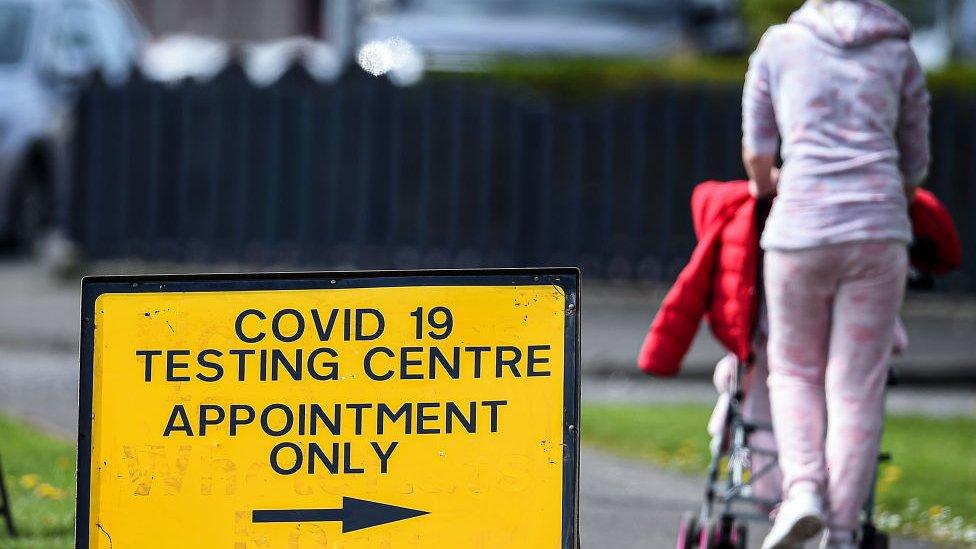
- Published28 August 2020
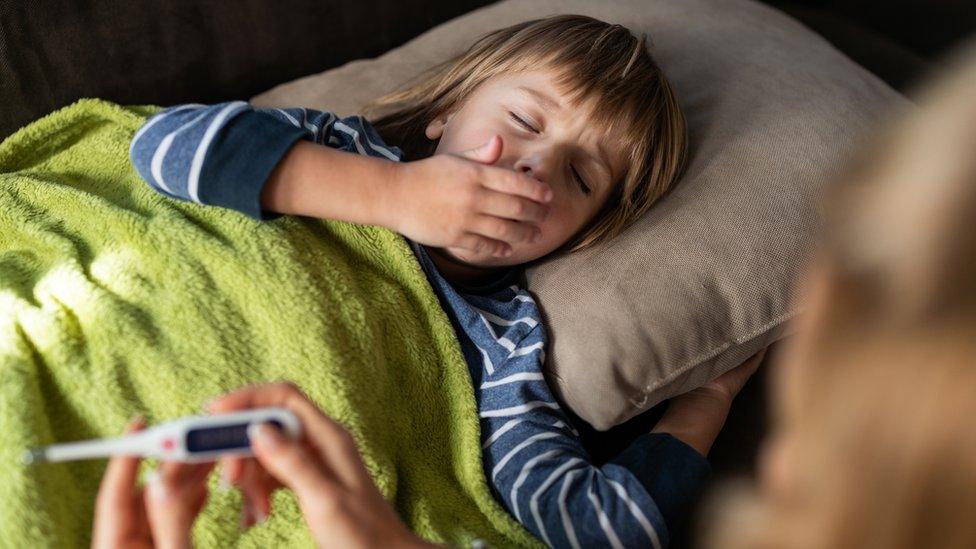
- Published27 August 2020
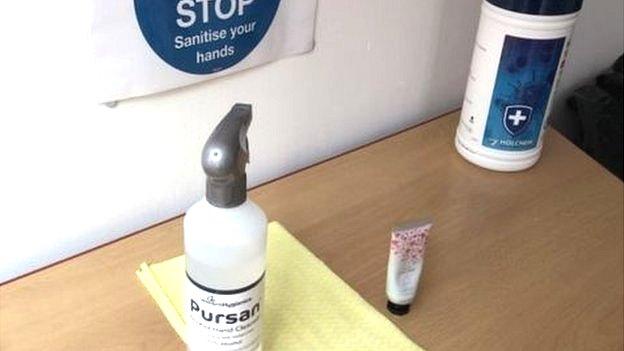
- Published4 September 2020
